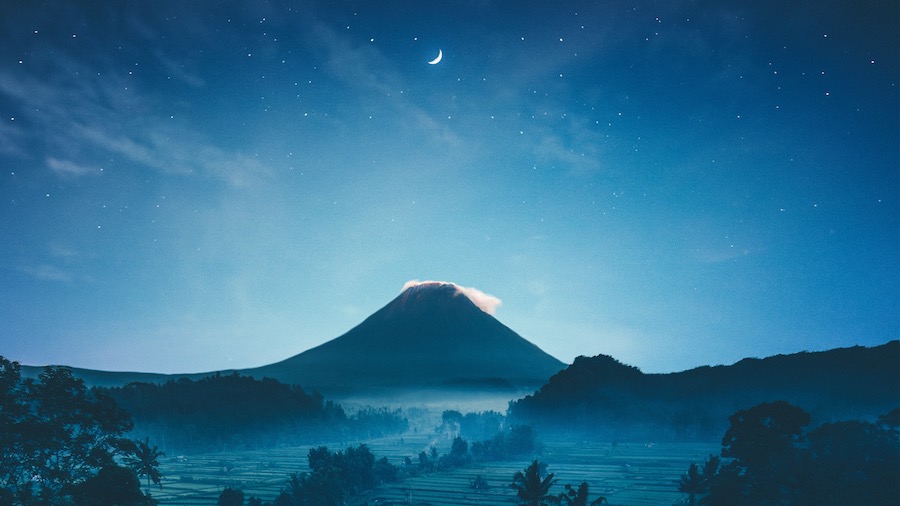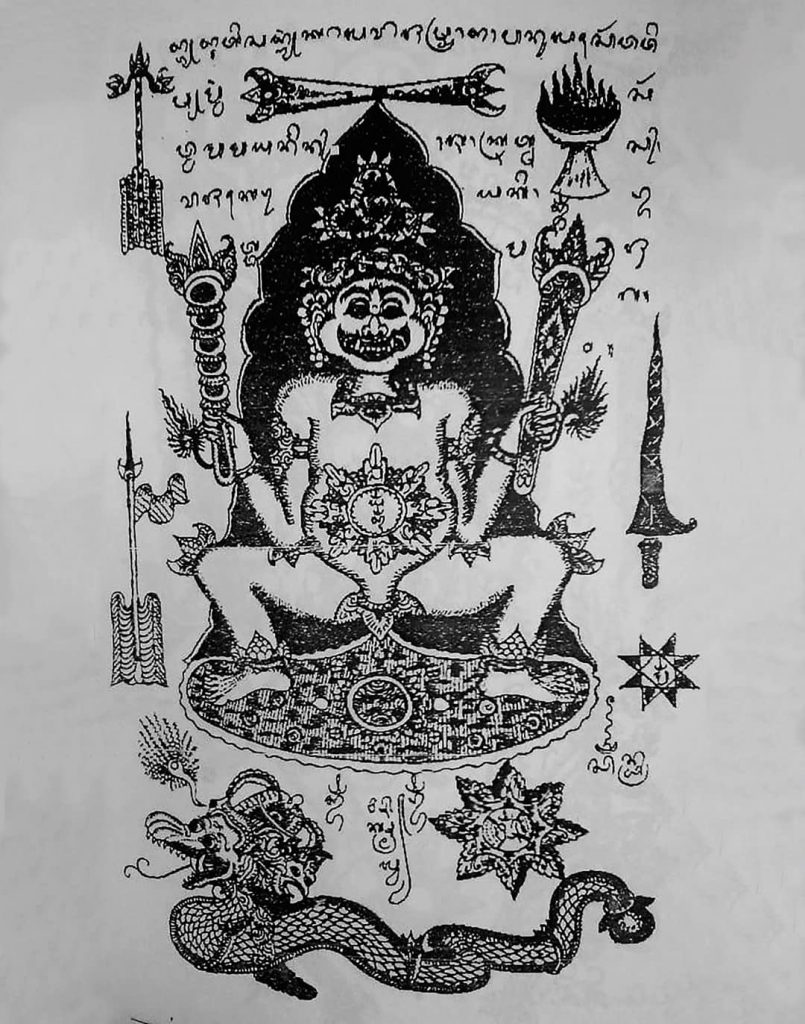Bali is an extraordinary place in which, like in ancient Greece and India, there are still stories that can be read as stories, or as philosophical teaching. One of these stories is the Kala Tatwa, the story of the Lord of Time, Batara Kala. The story below is only a slightly edited version of the original Kala Tatwa.
Once upon a time Lord Shiva and his beautiful consort, Giriputri, decided to tour the world. As they flew above the ocean, Shiva seemed quite taken by the beauty of its immensity. But, was it in fact the beauty of the sea that awed him, or was it actually the sight of Giriputri’s thighs?

The simple fact is that Lord Shiva was overtaken by an overwhelming urge: he wanted to make love to Giriputri. But she refused his amorous advances, saying, “It is not how gods should behave.” She certainly was not wrong: it is not the kind of things one should do – especially if one is a god – when flying over the world!
Yet, Lord Shiva was persistent. “Don’t be like that, my love,” he said. ‘I won’t be able to control my sexual hungers if you won’t surrender to my desire.” They started arguing. He was on the verge of compelling her into the act, hungry with an overwhelming lust, when suddenly, before he could force himself upon her, he ejaculated and his semen fell into the ocean below.
Not fully aware of what had happened, Lord Shiva and Giriputri soon returned to the abode of the gods. And before long they forgot about the whole thing.
But not so what fell into the ocean. Shiva’s very fluid of life stirred, a storm with huge waves. This did not go unnoticed by Lord Brahma and Lord Vishnu, who straightaway engaged in deep meditation. Suddenly, surging from the ocean’s depths, they saw a monstrous raksasa (demon) – a raksasa indeed so horrific that the two lords took fear and fled. Let us forget about the gods for a moment, and focus on the raksasa who was now on a rampage. “Who are my mother and father?!” he bellowed loudly. So terrible was he in his rage that the sea suddenly emptied. Shockingly, the North and the South, too, became empty, as did all the lands up above and down under. So loud was his snarling roar that not only did the sea shake but so did the abode of the gods. In fact, the raksasa shouted so loudly that all the gods came out to see what the ruckus was all about. There they beheld the gigantic raksasa, roaring like a lion, and begging to be told who his mother and father were.
Upset, together all the the gods attacked the raksasa with spears and arrows. But the raksasa was not afraid. He said to his attackers, “I am glad we meet. All I ask for is to know the truth.” To which the gods replied: “We owe you no explanation, raksasa. We know that you are evil and for this you must die.”

A big war ensued. The gods were soon hard-pressed and had no choice but to retreat, pursued by the raksasa. Finally they had no choice but to go to Lord Shiva, to whom they said, “Oh, Lord, we come looking for protection from you. A terrible raksasa is wreaking havoc in our godly abode. We, your sons, are unable to stop him. If you yourself don’t come out and fight him, this is the end of the abode of the gods.”
So Lord Shiva said: “Ah, Uh, Ah, Mah (sacred syllables), so my time to come out is here. I shall go and confront the evil raksasa.” He immediately did so, saying to him: “You there, big raksasa! You are evil, so I, Lord Shiva, am going to kill you.” Another terrible fight ensued, with vicious kicks, sharp spears and piercing arrows. But Lord Shiva could not defeat the monster, even with his holy weapon the bajra (lightning). So even the bravest of the lords fled, trembling, to a far away refuge. Yet, because he was the mightiest of the gods, he soon gathered his courage again. He returned to the scene of the battle, and said to the raksasa: “Raksasa, what are the sins of the gods that have caused you to so violently attack their home?“
To which the raksasa replied: “Oh my Lord. I never intended to make war. I just want to know who my father and mother are.”
Hearing these words, Lord Shiva replied: “Oh raksasa, cut first your right fang, and you will meet with your parents. I won’t lie to you.”
After the raksasa had done as Lord Shiva demanded, Shiva said to him, “Indeed, you are my son. Here are the powers I herewith bestow upon you: Jah Tas, Mat. You will reach perfection. Your name will be God of Time, Batara Kala; you will reside in all living beings and you will be their lord. If you want to bring them death or give them life, you can do so. These powers of life and death will be yours because you are my son and your mother is Uma (Giriputri).”
Such were the words of the Supreme Lord.
Then Uma/Giriputri spoke. “My son, as your mother, my request is that you go to the village and take residence in the temple of the dead (Pura Dalem) under the name of Batari Durga. Because as Uma, I am also also Durga (the Mother of the Hindu universe) and thus I am you. Your father, Lord Shiva gave you the name of Batara Kala, so you are the lord of all illnesses and pestilence that exist .
As with all stories in Hindu mythology, the Kala Tatwa is symbolic. This story tells us two important things. The first thing is that TIME – or Kala – and death are both born from life. And the second one, more feminist in spirit, is that men should never try to force themselves upon women, as the very intentions of their actions will give birth to its own kind of monster!
(1) The text mentions here kala, durga pisaca, wil, danuja, kingkara, raksasa, kalika, in short all the destructive forces of the world. In the Calon Arang dance, these spirits come out as Rangda’s the witch’s disciples or sisia-s, just before dawn, when Rangda calls Durga to the rescue before being neutralized by the Barong’s intervention.









